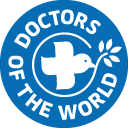In the Philippines, Doctors of the World leads the fight against harmful electronic waste and provides support to victims of natural disasters
Every year the world produces millions of tonnes of electrical equipment waste – also known as “e waste”
In the Philippines, especially in poorer communities, the recycling of this e waste is a major source of income for some neighborhoods. But e-waste, such as TVs, refrigerators, CD/DVD players and cell phones can leave communities exposed to dangerous chemicals if not dismantled and recycled safely.
The Philippines currently lacks formal regulation for the dismantling of e-waste and much of it is done by hand near residences or inside homes. This exposes families and their children to chemicals such as lead, cadmium and mercury on a daily basis. Chronic exposure to these chemicals can lead to immune system dysfunction, affect children’s neurological development, disrupt thyroid hormone levels and many other health conditions.
“Recycling families and their children can often be exposed to chemicals such as lead, cadmium and mercury on a daily basis.”
We also actively support communities responding to natural disasters
In 2013 we were involved in the emergency response to Typhoon Haiyan, which killed an estimated 6,300 people in the Philippines and affected over 11 million people.
Soon after the typhoon hit we dispatched a team of doctors, nurses and logisticians to provide emergency care to survivors in affected areas such as the island of Leyte. Our teams remained on the ground long after the typhoon had passed to assist communities in the rebuilding process.

